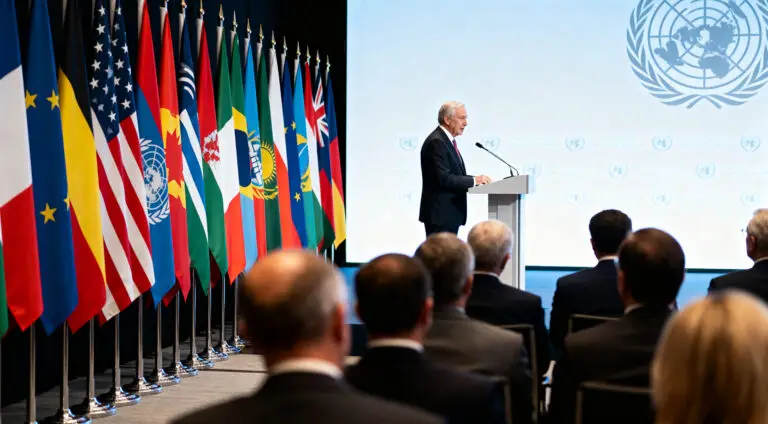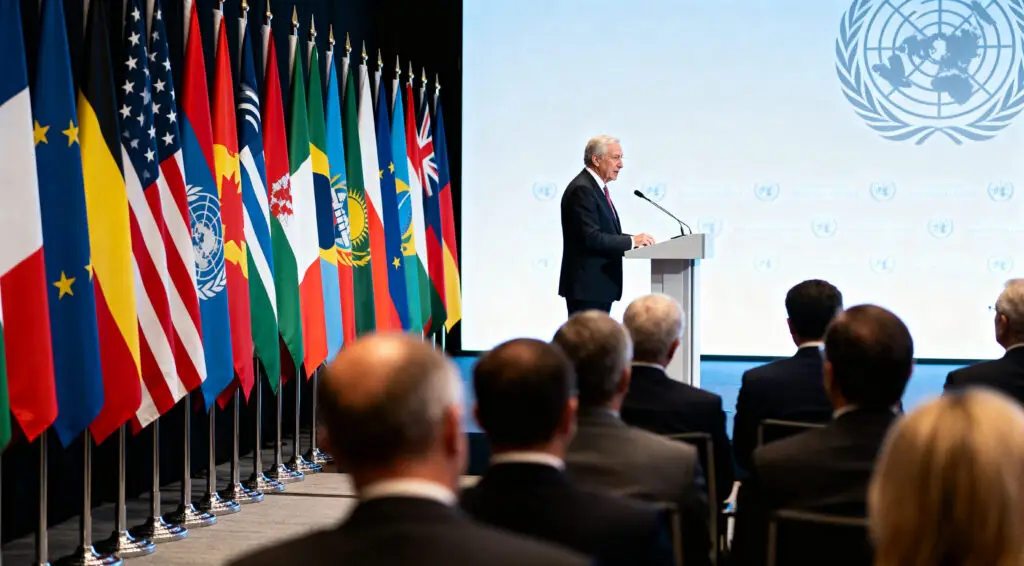A Decline in Presidential Approval
U.S. President Donald Trump’s approval rating has fallen to the lowest level recorded during his second term in office, according to a recent Pew Research Center poll. The poll, which surveyed 3,554 U.S. adults in August 2025, found that Trump’s approval rating is now at 38%.
This marks a nine percentage point drop from his standing in February and is the lowest point he has reached so far in his second presidency. This decline in public support suggests that a growing number of voters, including some from his own party, are becoming disenchanted with his policies and agenda.
Tariffs Face Widespread Disapproval
While some of Trump’s policies have faced unpopularity, it is his trade policies that have drawn the most significant public backlash. The Pew poll found that a majority of Americans, 61% of all respondents, disapprove of his policy of imposing substantially higher tariffs on goods from other countries.
This disapproval is particularly notable because it extends well beyond the president’s traditional opponents, indicating a broader dissatisfaction with the economic fallout of the policy.
Cracks in Republican Support
The data from the Pew Research Center suggests there are clear cracks in support for Trump’s policies among his own voter base. While 85% of 2024 Trump voters still approve of his job performance overall, a far smaller number, only 31% of Republican poll respondents, “strongly” approve of his tariff scheme. According to Jocelyn Kiley, director of politics research at Pew, this data shows a clear “softness” in support for Trump’s trade policies among Republicans. The findings suggest that while voters may be loyal to the president himself, they are not necessarily on board with all of his key policies.
The Broader Economic Impact of Tariffs
The economic consequences of the tariffs are a major reason for the public’s disapproval. The policy has been linked to rising prices for consumers, increased economic anxiety across various sectors, and strained international relations, particularly with Canada. For American businesses, the costs associated with the tariffs are a significant burden. Many companies have had to absorb these costs, which can lead to reduced profits, higher prices for their goods, or a combination of both.
An Existential Threat to Businesses
Chuck Dardas’ story is a powerful example of the real-world impact of the administration’s trade policy. As the president of AlphaUSA, a family-owned auto parts firm in Michigan, he says the tariffs on steel and aluminum have created what he calls an “existential threat” to his business.
Dardas explained that his company, which employs about 200 people, has already had to pay out a “seven-figure” sum to cover tariff costs on products from countries like Canada. With thin profit margins in the auto parts industry, these tariffs pose a significant financial risk.
The Real-World Consequences for Americans
The sentiment reflected in the poll data and the business case study indicates that the policy that President Trump has called his “favorite” may be doing more harm than good to a key part of the American economy. The tariffs have not only increased costs for American businesses but have also created an environment of uncertainty and risk.
The deep concern among manufacturers who rely on a stable and predictable global supply chain is a clear sign that the policy’s consequences are being felt well beyond the political sphere.
The Political Fallout and Future Outlook
The sharp drop in President Trump’s approval rating and the growing disapproval of his tariff policy signal potential political fallout. As the country moves closer to the next election cycle, the president may face a challenge in maintaining the full support of his base, particularly as the economic impacts of his trade policies become more pronounced.
The data suggests that for a significant portion of the electorate, economic concerns are beginning to outweigh personal loyalty, which could have long-term implications for the administration and the Republican Party as a whole.















